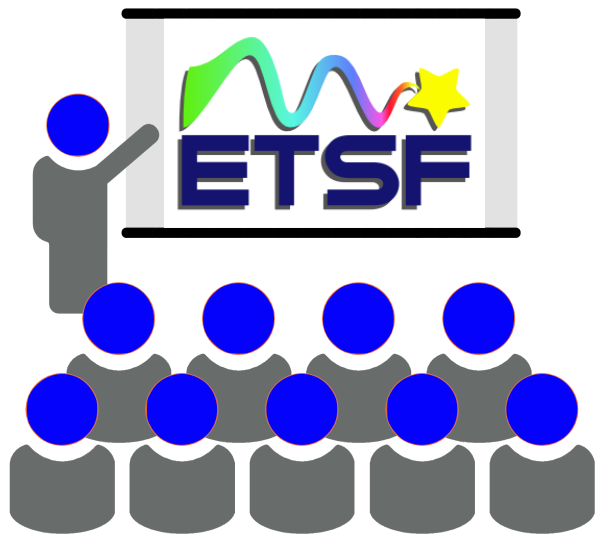European Theoretical Spectroscopy Facility
Coimbra, 2021, 12-16 December
The European Theoretical Spectroscopy Facility (ETSF) is a research network comprising 68 research teams across Europe and the United States.
It carries out state-of-the-art research on theoretical and computational methods for the study of electronic and optical properties of materials. Due to its wide range of subjects and methods, the knowledge and expertise of the ETSF is relevant to a great number of fields in need of knowledge about electronic excitations, transport and spectroscopy, such as condensed-matter physics and chemistry, biology, and materials- and nano-science. The ETSF gathers the experience and know-how of more than 200 researchers, facilitating collaboration, innovation, and rapid knowledge transfer.
The research network focuses on ETSF scientists’ collaborative research, including the development of new theory and algorithms for describing optical properties, spectroscopic processes, and more in general a wide range of different electronic excitations. The complexity of these topics stems in particular from the electronic many-body effects which are of great importance in the excitation processes. The ETSF regularly organizes training events targeted at young researchers wishing to pursue a career in the area of theoretical spectroscopy. The ETSF facilitates access to its codes through standardization of codes, files, libraries and tools.
Equilibrium and out-of-equilibrium realistic phonon self-energy free from overscreening | etsf

Leave a Reply